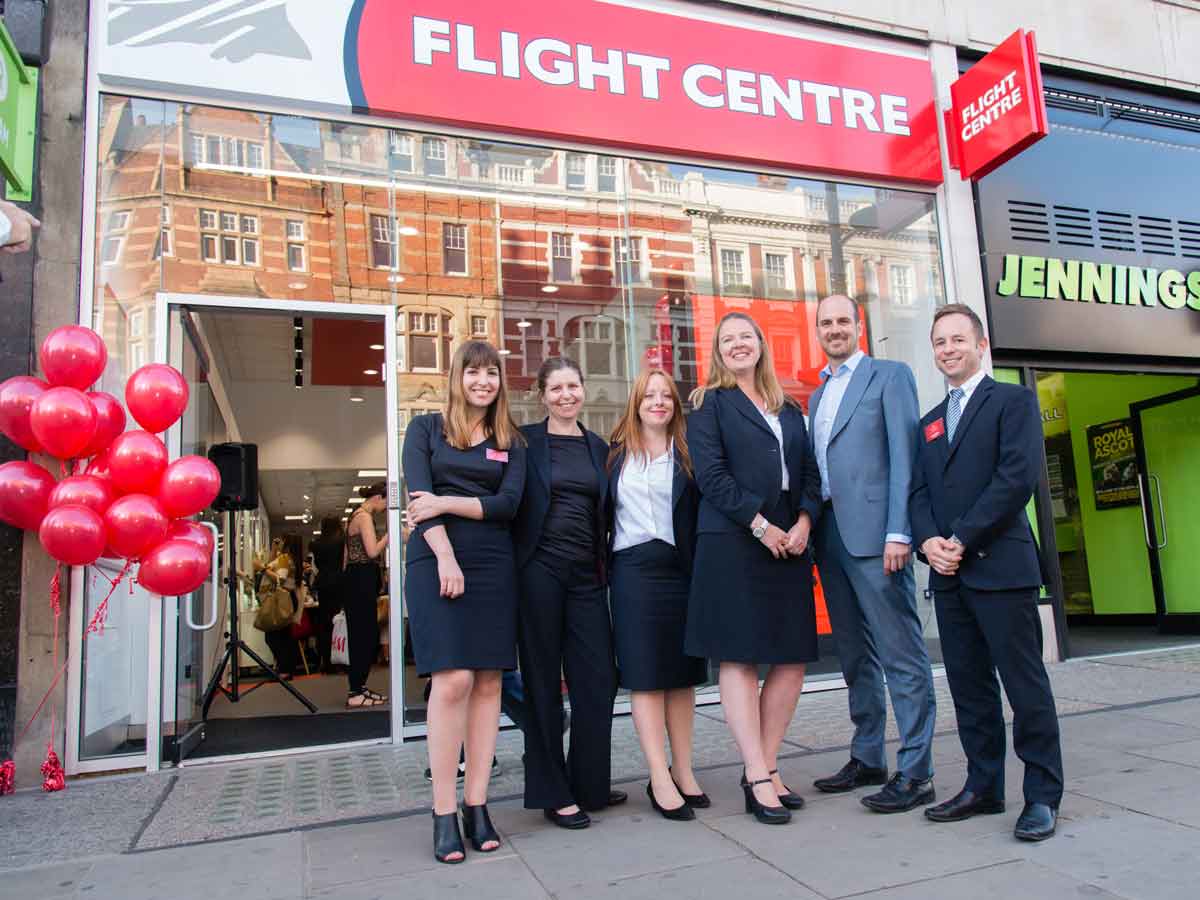Up and away: Chris Galanty
For British corporate high flyer Chris Galanty, it would have been impossible to predict that the ‘temporary’ job choice he made after university would lead to his career taking off in the way it has.
Flight Centre is known around the world, but when Chris Galanty joined the UK operation, it was in start-up phase and had only a handful of staff. Chris, now Managing Director for Flight Centre’s European and African operations, joined the travel giant in 1997 when he was 23 years old. A keen traveller, he had just returned from six weeks backpacking in Venezuela, researching local pop music, when he got a job as a Flight Centre consultant.
"It was a short-term opportunity, but I ended up falling in love with the company and the industry. It’s grown from a small team into a very large business and I’ve grown with it," he says.
It sounds obvious to say that Flight Centre stays strong by retaining customers, but Chris points out that in an industry that offers an enormous amount of choice, the only way to stay ahead is to work hard.

"Our major customers can spend £70–80 million a year across many markets, while others just want a cheap deal from London to New York," he says. "We don’t try and appeal to these very varied customers with one brand or one pricing strategy. We have over forty brands globally and ten in Europe. Each has its own leader, product and pricing strategy and so on, all built around the customer experience. That works very well."
Small-business mentality
One of the reasons for the company’s success, Chris believes, is Flight Centre’s small-business mentality. It works on a family-village-tribe concept that has been key to the organisation since Flight Centre was founded in Australia in 1981.
"No matter how large we get, we divide the organisation into smaller units," Chris explains. "The village is the community the business operates in, so it could be a small group of teams in Edinburgh or a part of London. The most important part is the family, which is a small team with a team leader and a group of staff. They have to follow global brand standards but they run it as their own. No matter how large we get, people don’t get lost in a large organisation."
Of course, no business operates in isolation. Flight Centre knows the value of its teams and customers, but also of its partners, which it doesn’t label as ‘suppliers’. Chris says using the term reminds all parties that it is a partnership, whether they are large organisations like airlines and hotel chains, or small tour companies.
"What we try and do with our large partners is get them involved in our training, our branding, our website design, our shop design. We work on the premise that if we can understand what they do and share a longer-term vision with them, hopefully we can do two things. One is that we can help to shape it because we are in contact with their customers probably more than they are, until they finally ‘meet’ when they use their product.
We have over forty brands globally and ten in Europe. Each has its own leader, product and pricing strategy.
But also, if we understand it better we can sell it better."
The digital space is a major part of Flight Centre’s innovation and Chris is enthusiastic about its power to build the business. The company has a Digital Centre of Excellence in Boston, which works with its teams around the world, creating a wide range of online solutions for both leisure and corporate customers.
He’s equally enthusiastic about Flight Centre’s future in travel generally, saying that a company once known just for deals on fares is investing solidly in the full customer experience.
"We’ve made some acquisitions, ranging from the youth market to the luxury end. There’s also our vertical integration strategy where we align more elements of the customer experience — not just retailing and travel management, but also what customers are doing within destinations. And we’ve invested heavily in destination management companies so when customers arrive in Vietnam or Thailand or wherever, they have customer experience sold to them. That gives us more opportunity to generate revenue from the customer spend."
As a long-time ‘student’ of the industry, Chris is still fascinated by the business. He loves that travel has become more affordable because it means more people are travelling, and that hotels, airlines and tour companies are providing a better experience. "But many areas are much the same," he says. "Families still travel during school holidays, people still travel to the same destinations in a similar volume, and the way the airline hub industry works, although there’s been a shift to Middle East growth. There’s better value and quality for customers, but most importantly many more people are travelling and that’s great for the world. Travel
is a very important industry for the world in general, and it’s certainly good for business."
Chris’ profession is still his passion and he’s often on a plane in his own time. His favourite places include Italy and also Australia, where he has friends. Perhaps not surprisingly, he has some advice for anyone planning a long trip: "I am very biased but it makes sense to book with an expert. It makes travel a lot more stress-free and enjoyable."